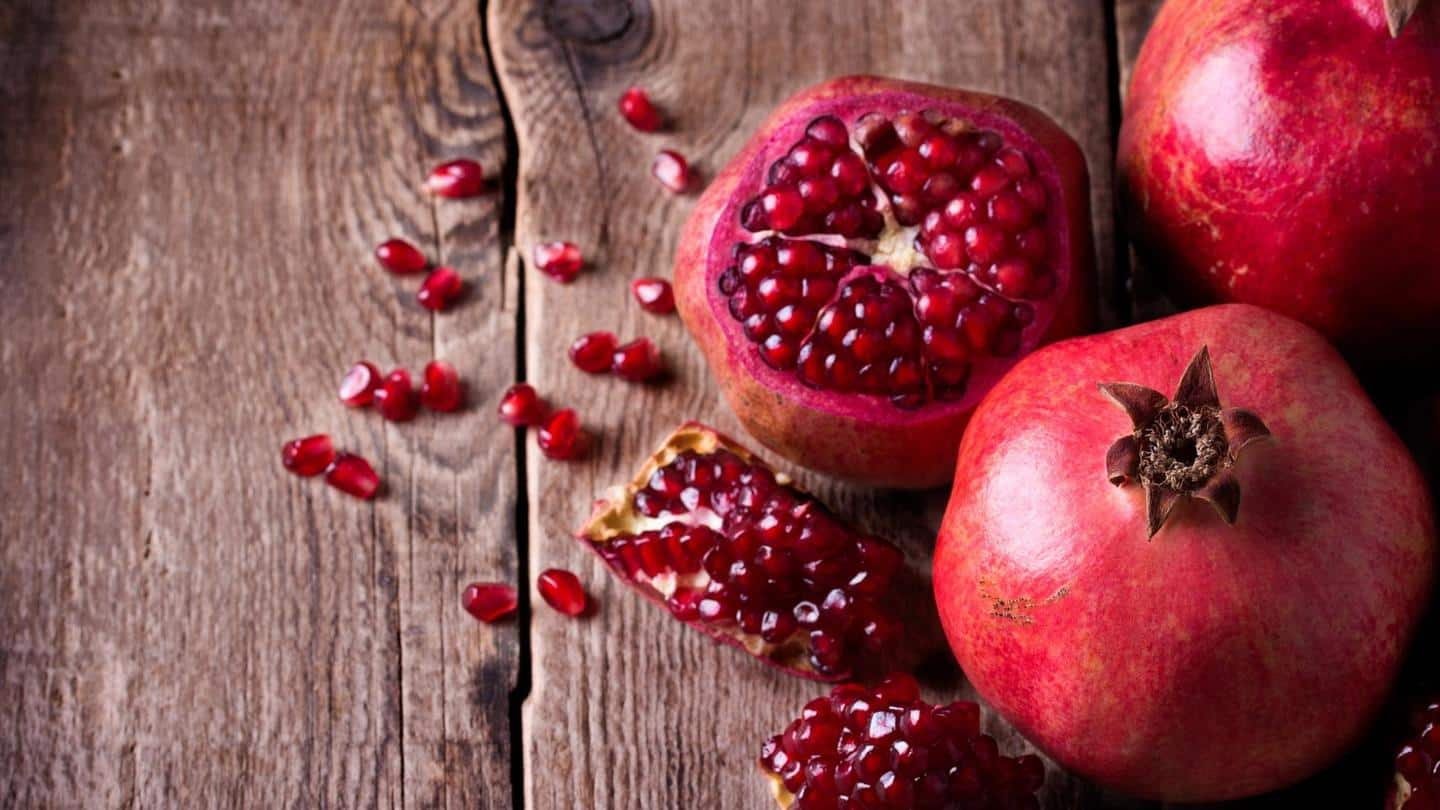
#HealthBytes: Why you should make pomegranate part of daily diet
What's the story
Pomegranates are called the "divine" fruit for a reason.
It contains more than 100 phytochemicals, plant-based compounds that are known to exhibit several health benefits. In addition, pomegranates contain several vitamins and antioxidants, rightly making them one of the healthiest fruits on the planet.
Here are some of the many reasons why you should pick up pomegranate or its juice at the store.
Punicalagins
Contains punicalagin, which has anti-inflammatory properties
Pomegranate juice and its peel are a rich source of punicalagin, a potent antioxidant that has a host of health benefits.
Punicalagins are known to inhibit the growth of prostate cancer cells and reduces the risk of several other cancers.
It also exhibits strong anti-inflammatory properties that prevent chronic inflammation, a condition that can cause several harmful health conditions.
Arthritis
Has certain enzymes that reduce the symptoms of arthritis
Arthritis is an ailment that affects millions of people worldwide. There are many types of arthritis but most of them have inflamed joints as a common symptom.
The anti-inflammatory properties of punicalagin and other compounds make it effective in treating arthritis.
Studies prove that pomegranate extracts block certain enzymes that cause damage to the joints of people suffering from osteoarthritis.
Punicic acid
Punicic acid reduces the risk of heart diseases
Pomegranates contain punicic acid, a fatty acid that helps in protecting the heart against several diseases.
A study conducted on 51 participants with high triglyceride levels showed that consuming 800 mg of pomegranate seed oil every day significantly lowered the triglycerides.
Another study showed that pomegranate juice helps in preventing the oxidation of LDL cholesterol that can lead to many severe heart conditions.
Infections
Keeps bacterial and fungal infections at bay
Pomegranates contain over 100 phytochemicals and each comes with its own set of health benefits. One such ability is to keep away harmful microorganisms.
Studies show that these plant compounds are effective in combating certain types of bacteria and a type of yeast called Candida albicans.
The anti-bacterial and anti-fungal properties also help in preventing dental conditions like gingivitis and periodontitis.